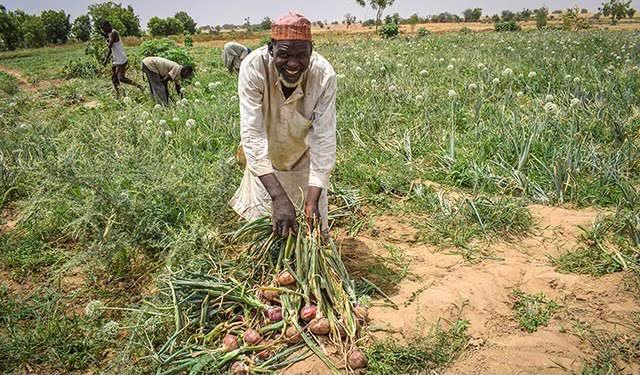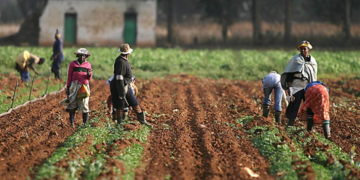The Onion Producers, Processors and Marketers Association of Nigeria (OPMAN) has explained the upsurge in the price of onions and the scarcity of the produce in the country.
The price of onions in Nigeria skyrocketed in 2024, climbing as high as 108% compared to the previous year.
In Lagos, a bag of onions that cost N130,000 in December 2023 soared to N270,000 by December 2024,
Meanwhile, individual bulbs of the staple that once sold for N50 now fetch N500, leaving consumers and traders grappling with the impact, especially during the just-concluded festive period.
Farmers have blamed climate change volatility as a key factor for the surge.
Heavy rains and dam water releases crippled onion production in states including Sokoto, Kebbi, Zamfara, Kano, Kaduna, Katsina and Adamawa.
The release of water from Goroyo Dam in Sokoto and the collapse of dams in Borno State also destroyed vast farmlands, leading to massive crop losses.
In an interview with the News Agency of Nigeria (NAN), OPMAN national president, Aliyu Isah, confirmed the factors behind the dramatic price hike.
He said, “What caused the scarcity and high cost of onions is primarily the flooding of 2024, we experienced extended and heavy rainfall, which created high humidity and led to outbreaks of Downy Mildew, a disease that destroyed onion farms at various stages of cultivation.”
He added that the prolonged rains wreaked havoc from seedling to harvest stages, significantly reducing the yield.
He continued “We also had the problem affecting onion production with the release of water from dams from the northern states, also, we had the breakage of dams in Borno State which destroyed our onion farmlands”.
“The second issue affecting scarcity and the high cost of onions is that we experienced an extended and high level of rainfall up north in 2024.
So, the high amount of rainfall resulted in high humidity which resulted in a disease outbreak popularly called Downy Mildew, which destroyed most of our onion farms at various stages of cultivation.
“Some onion farms were affected at the seedling stage, some at nursery stage, some when we were even about to harvest the onion,” he said.
He noted, “The third is the issue of unavailability of the produce due to lack of improved onion seedlings.
We do not have sufficient quality onion seedlings, so we now rely on hybrid seeds that we import from foreign countries.
The flooding affected onion seed production, so local farmers could not get enough seed to buy. This situation also resulted in the unavailability of onions. From the fourth quarter of 2024, our farmers with their money could not see seed to buy. ”
“This also culminated in a serious problem: Some unpatriotic Nigerians imported adulterated onion seed into the country, and now our farmers are counting their losses because they planted a seed that could not produce a bulb.
Post-harvest losses are another contributory factor to scarcity and price surge of onions”.
He added, “That even when we harvest enough during the season because we lack improved technology of onion storage, we are faced with more than 50 per cent post-harvest losses.
“This is to say that more than half of what we produce, we lose it after harvest. So, all these are part of the problem that is making the onions too expensive,”.
Aliyu said the association was working with the federal government on ways to boost production and tackle the surge in the price of onions.




